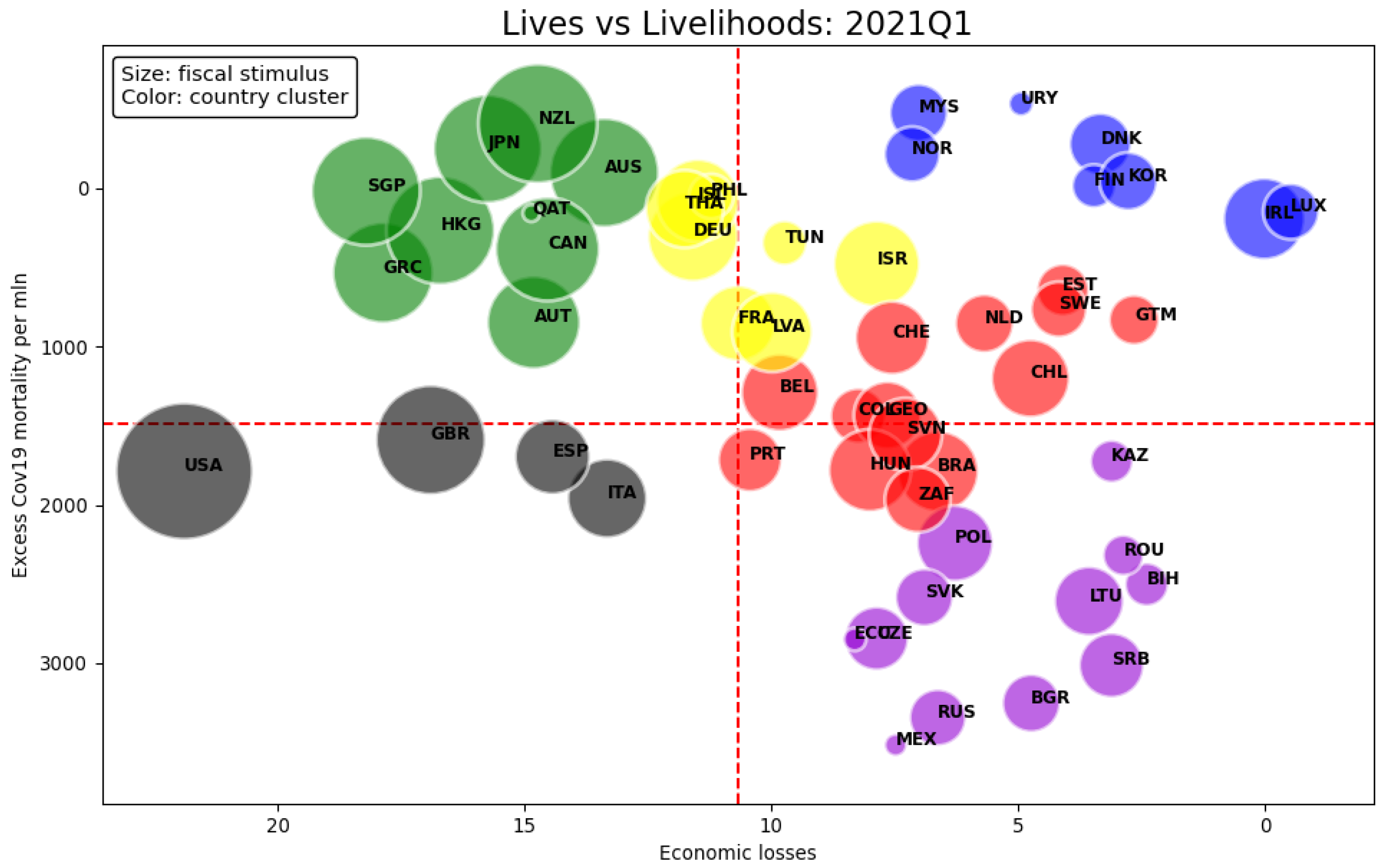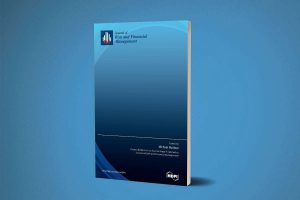COVID-19 Mortality and Economic Losses:
The Role of Policies and Structural Conditions
by Weichen Wang, Andrea Gurgone, Humberto Martínez, Maria Cristina Barbieri Góes, Ettore Gallo, Ádam Kerényi, Enrico Maria Turco, Carla Coburger, Pêdra D. S. Andrade
This article belongs to the Special Issue
Abstract
The response of governments to the COVID-19 outbreak was foremost oriented to two objectives: saving lives and limiting economic losses. However, the effectiveness and success factors of interventions were unknown ex-ante. This study aims to shed light on the drivers of countries’ performances during the first year of the COVID-19 pandemic. We measure performances by excess mortality and GDP growth adjusted for additional fiscal stimulus.  We conduct an empirical analysis in two stages: first, using hierarchical clustering, we partition countries based on their similarity in health and economic outcomes. Second, we identify the key drivers of outcomes in each country cluster by regression analysis, which include linear, least absolute shrinkage and selection operator (LASSO), and logit models. We argue that differences in countries’ performances can be traced back both to policy responses to COVID-19 and structural conditions, the latter being immutable over the pandemic. Three relevant structural conditions emerge from the results: trade reliance on services, corruption, and the size of the vulnerable population (elderly, low-income, smoking, or cardiovascular-failing). Policies such as large-scale open public testing and additional fiscal stimulus in non-health could help reduce excess mortality, which might lead to lower economic losses.
We conduct an empirical analysis in two stages: first, using hierarchical clustering, we partition countries based on their similarity in health and economic outcomes. Second, we identify the key drivers of outcomes in each country cluster by regression analysis, which include linear, least absolute shrinkage and selection operator (LASSO), and logit models. We argue that differences in countries’ performances can be traced back both to policy responses to COVID-19 and structural conditions, the latter being immutable over the pandemic. Three relevant structural conditions emerge from the results: trade reliance on services, corruption, and the size of the vulnerable population (elderly, low-income, smoking, or cardiovascular-failing). Policies such as large-scale open public testing and additional fiscal stimulus in non-health could help reduce excess mortality, which might lead to lower economic losses.
 We conduct an empirical analysis in two stages: first, using hierarchical clustering, we partition countries based on their similarity in health and economic outcomes. Second, we identify the key drivers of outcomes in each country cluster by regression analysis, which include linear, least absolute shrinkage and selection operator (LASSO), and logit models. We argue that differences in countries’ performances can be traced back both to policy responses to COVID-19 and structural conditions, the latter being immutable over the pandemic. Three relevant structural conditions emerge from the results: trade reliance on services, corruption, and the size of the vulnerable population (elderly, low-income, smoking, or cardiovascular-failing). Policies such as large-scale open public testing and additional fiscal stimulus in non-health could help reduce excess mortality, which might lead to lower economic losses.
We conduct an empirical analysis in two stages: first, using hierarchical clustering, we partition countries based on their similarity in health and economic outcomes. Second, we identify the key drivers of outcomes in each country cluster by regression analysis, which include linear, least absolute shrinkage and selection operator (LASSO), and logit models. We argue that differences in countries’ performances can be traced back both to policy responses to COVID-19 and structural conditions, the latter being immutable over the pandemic. Three relevant structural conditions emerge from the results: trade reliance on services, corruption, and the size of the vulnerable population (elderly, low-income, smoking, or cardiovascular-failing). Policies such as large-scale open public testing and additional fiscal stimulus in non-health could help reduce excess mortality, which might lead to lower economic losses.Keywords: SARS-CoV-2; COVID-19; resilience; covid economics; health policy; system recovery




